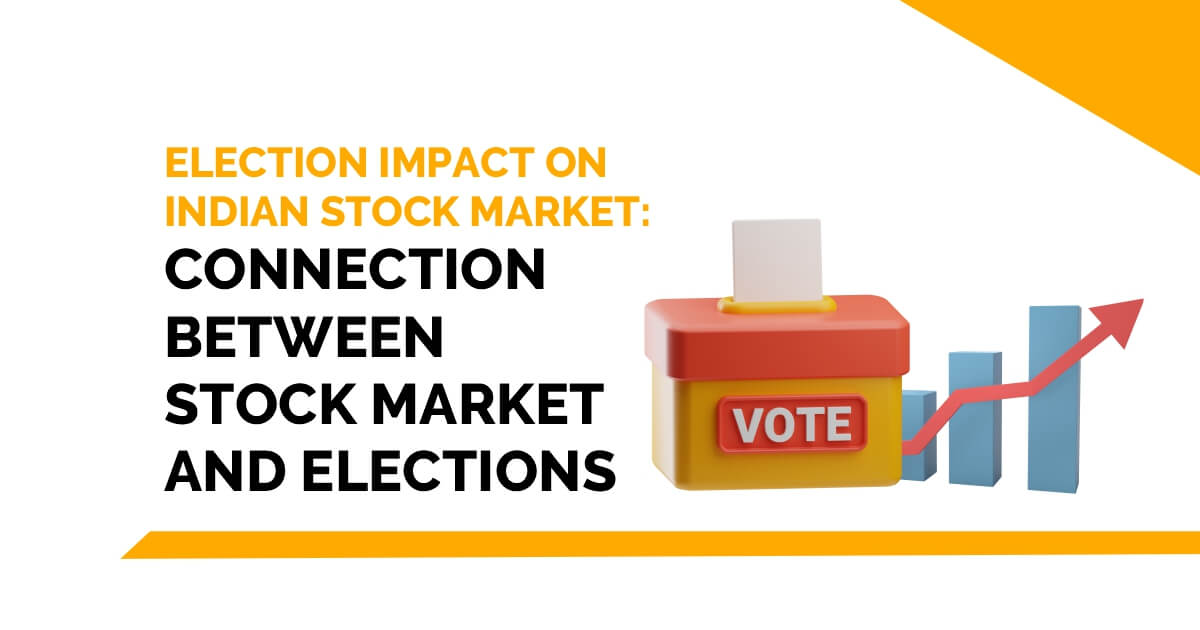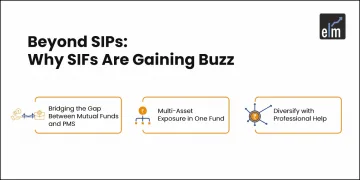The 2024 Elections are around the corner. All the investors are worried about how the stock markets will behave during the elections.
India is the biggest democracy in the world. The enthusiasm and expectation surrounding the general elections are nothing new to us.
General elections in India have an impact that goes beyond politics. It has a big impact on India’s stock markets and economy.
New information constantly affects stock prices among the most significant events that a nation, its citizens, its economy, and its society experience are undoubtedly elections.
Since it is a regular occurrence that follows a set schedule, there aren’t many unexpected events or announcements that could significantly alter how stock markets act at the beginning of election cycles. During these election seasons, stock markets also turn into a gauge of political mood and economic stability.
We shall examine the connection between the Indian stock market and general elections in this blog. It will assist you in making plans for the upcoming months.
History So Far
Let us discuss how the stock market reacted to the past elections
1991- Congress ERA
The 1991 assassination of Prime Minister Rajiv Gandhi increased the turbulence in the market.
Inflation, a small amount of foreign exchange reserves, and a high gross fiscal deficit all hurt the economy. Nonetheless, the Congress party was able to restore market trust under PV Narasimha Rao’s direction by enacting reforms, liberalising the economy, and drawing in foreign capital.
These actions sparked an uptrend in the stock market and increased economic growth.
1996 to 1998
The Asian Financial Crisis and political unrest characterised the years 1996–1998.
Market confidence declined due to instability and three different prime ministers, which had a negative impact on the Indian rupee and export-oriented sectors.
1999- NDA in Power
The market felt more stable following the National Democratic Alliance’s (NDA) victory in the 1999 election under the leadership of Atal Bihari Vajpayee.
Since the market had anticipated the results, the Sensex increased by almost 7% and maintained its upward trajectory for the following three months. Consequently, the GDP grew at a rate of about 6–7%.
2004- Congress Back to Power
Due to the results not aligning with market sentiment, the market experienced a 15% decline in two to three trading days following the 2004 election.
The market had hoped for an NDA administration, but Congress had formed one. Following the initial disappointment, the market had a bull run that lasted until late 2007.
2009-Congress Continues for a Second Term
2009 saw the UPA retake control.
The market had a 17% increase in a single day, but it remained erratic due to the numerous scams that plagued the UPA government’s second term.
Modi Waves-2014
Investor mood in the market significantly improved in 2014 when the NDA regained control with a complete majority.
The market’s volatility decreased from 17.96% to 9.1%, indicating a more stable trading environment due to the decreased volatility. There was also a significant surge in the stock market, which saw record highs.
BJP Remains in Power-2019
Following the election, the market saw a notable surge that resulted in record highs for a number of important stock indices.
The expectations of sustained policy continuity and economic changes under the BJP-led administration were cited as the reason for this gathering. Let’s examine a recent instance: the general elections in India in 2019.
2018 saw the economy begin to recover from the shock of demonetization. The IL&FS credit default scandal hurt the home markets. A shortage of liquidity hit the NBFC industry as a result of the crisis. All non-banking equities were hardest hit, with the majority of them experiencing losses by the last quarter of 2018.
The Nifty hit 11,000 in January before plunging to 9,998.05, the lowest point of the year, on March 23. On August 28, it recovered to reach the highest point of the year, 11,738.5. After that, the Nifty dropped to roughly 10,000 in October before slowly rising to conclude the year just short of 11,000 points.
With a resounding win, the Bharatiya Janata Party (BJP) formed a stable government headed by Prime Minister Narendra Modi.
This result was well received by the stock market, as benchmark indices like the Sensex and Nifty quickly hit all-time highs upon the announcement of the election results. The expectation of continued policy and economic improvements helped to boost investor confidence.
GDP and Inflation
Let us discuss the current GDP Growth Inflation and Jobs data:
GDP
Regarding Q2 GDP growth, PM Modi complimented the Indian economy on its tenacity and strength. The GDP figures were stronger than anticipated, which was a welcome surprise.
Inflation and Jobs
With the exception of seasonal variations, the price situation is largely under control. When it comes to controlling price increases, the Reserve Bank of India (RBI) is in the lead.
One of the biggest industries in terms of employment is the IT sector, which is being significantly impacted by the global slowdown. Jobs in government are working harder to keep up with the pace.
How should traders trade before the 2024 Elections?
Since the exit polls are only forecasters of the ultimate results of the Lok Sabha elections, there is currently a great deal of volatility in the market. Additionally, traders have been told to hold off on taking a bold stance until the market has had time to process the final election results.
Bottomline
As we discussed above, there is short-term volatility in the Indian stock market both before and after the election. However, the government’s capacity to implement policies and foster an atmosphere that is favourable for businesses will ultimately determine the course of events in the long run.
To lessen the volatility brought on by-elections, investors should approach the stock market from a long-term perspective, concentrating on fundamentals and diversity. Additionally, keeping up with election-related developments and their possible effects on the economy can assist investors in making wise choices when election cycles are underway.
Even while general elections have a big influence on the stock market, successful long-term investing in this lively and dynamic democracy requires careful planning and a focus on the wider economic picture.
Frequently Asked Questions (FAQs)
How does the election affect the stock market in India?
Experts forecast a good beginning for the stock markets tomorrow, which will undoubtedly be pleased with the election outcome. The performance of the BJP in the most recent State Assembly elections, particularly in the Hindi heartland, which constitutes its core voting base, should encourage the markets as it is evident that the stock markets desire stability.
How do political factors affect the stock market?
Politics has a significant impact on the stock market. Businesses in unstable political environments tend to have low business confidence indices, which may result in a lack of finance and investment. It is possible for foreign investors to withdraw their money.
Why the stock market is rising in India?
Market analysts claim that the participatory upsurge in the majority of Indian indices is primarily responsible for the recent surge in important benchmark indexes. They claimed that the surge in Indian indexes to record highs was caused by continuous inflows by FIIs, DIIs, and Indian retail investors.







